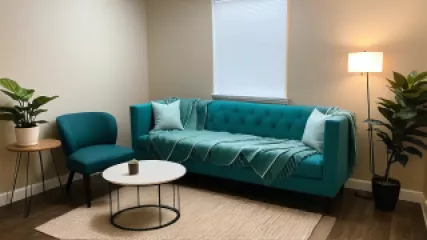Breaking Through Barriers to Therapy: My Thoughts on Understanding Resistance
Welcome to my opinion piece on understanding resistance in therapy. In this article, I will share my thoughts on the barriers that individuals often face when seeking therapy and how we can overcome them. Therapy is a powerful tool for personal growth and healing, but it's not always easy to take that first step or stay committed to the process. By addressing emotional blocks and offering support for these barriers, we can create a more inclusive therapeutic environment that empowers individuals to break through their resistance.
Understanding the Barriers
Resistance refers to the various obstacles and hesitations that individuals may experience when engaging in therapy. These barriers can manifest in different ways, making it crucial to approach each client with empathy and understanding. Some common emotional blocks include:
- Fear of Vulnerability: Opening up and sharing personal experiences can be intimidating, especially for those who have experienced trauma or have a history of feeling judged or invalidated.
- Stigma and Shame: Society's perception of mental health issues can lead to feelings of shame and self-judgment, making it difficult for individuals to seek help.
- Previous Negative Experiences: Past encounters with therapy that were unhelpful or even harmful can create a reluctance to engage in the process again.
- Lack of Trust: Building a trusting relationship with a therapist takes time and effort. Without a solid foundation of trust, clients may struggle to fully engage in therapy.
- Self-Sabotage: Unconscious defense mechanisms can lead individuals to resist change or growth, keeping them stuck in their current patterns.
It's important to recognize that resistance is a natural response to change and should not be seen as a sign of weakness or failure. Instead, it should be viewed as an opportunity for growth and exploration.
Overcoming Barriers to Therapy
As therapists, it is our responsibility to create a safe and supportive environment that encourages clients to confront and overcome their resistance. Here are some strategies to address emotional blocks:
1. Establishing Rapport
Building a strong therapeutic alliance is essential in overcoming resistance. By actively listening, showing empathy, and validating clients' experiences, therapists can create a safe space where individuals feel heard and understood.
2. Normalizing Resistance
It's important to normalize resistance and let clients know that it is a common part of the therapeutic process. By acknowledging their concerns and fears, we can work collaboratively to explore and address them.
3. Cultivating Trust
Trust is the cornerstone of any therapeutic relationship. Therapists can build trust by demonstrating consistency, reliability, and respect for client autonomy. Creating a non-judgmental atmosphere allows clients to feel secure in sharing their thoughts and emotions.
4. Tailoring Approaches
Every individual is unique, so therapy approaches should be tailored to meet their specific needs. Flexibility and adaptability in therapeutic techniques can help overcome resistance and create a more personalized healing experience.
5. Offering Psychoeducation
Providing information about the therapeutic process and the potential benefits of therapy can help alleviate fears and misconceptions. Educating clients about the normal challenges they may encounter along the way can empower them to persevere.
6. Encouraging Self-Reflection
Encouraging clients to engage in self-reflection outside of therapy sessions can help them gain insights and develop a deeper understanding of their resistance. Journaling, mindfulness practices, or other forms of self-expression can support this process.
7. Addressing Self-Sabotage
If clients are engaging in self-sabotaging behaviors, it's important to explore the underlying reasons behind these actions. By uncovering and addressing the root causes, therapists can guide clients towards healthier coping mechanisms and patterns of behavior.
A Personal Perspective
As a therapist, I have witnessed firsthand the transformative power of therapy when individuals are able to break through their resistance. It's essential to approach each client with compassion and patience, recognizing that their journey is unique and may take time.
By creating a safe and supportive therapeutic environment, we can empower individuals to confront their emotional barriers and embark on a path of healing and personal growth. Together, we can overcome the resistance that holds us back and embrace the transformative potential of therapy.
"The curious paradox is that when I accept myself just as I am, then I can change." - Carl RogersSource: https://www.goodreads.com/quotes/15884-the-curious-paradox-is-that-when-i-accept-myself-just
In conclusion, understanding resistance in therapy is crucial for therapists and clients alike. By acknowledging and addressing the emotional barriers that individuals may face, we can create a more inclusive and empowering therapeutic environment. Breaking through these barriers requires patience, trust, and compassionate support. Let us continue to strive for a world where everyone has access to the transformative power of therapy, free from judgment and stigma.






